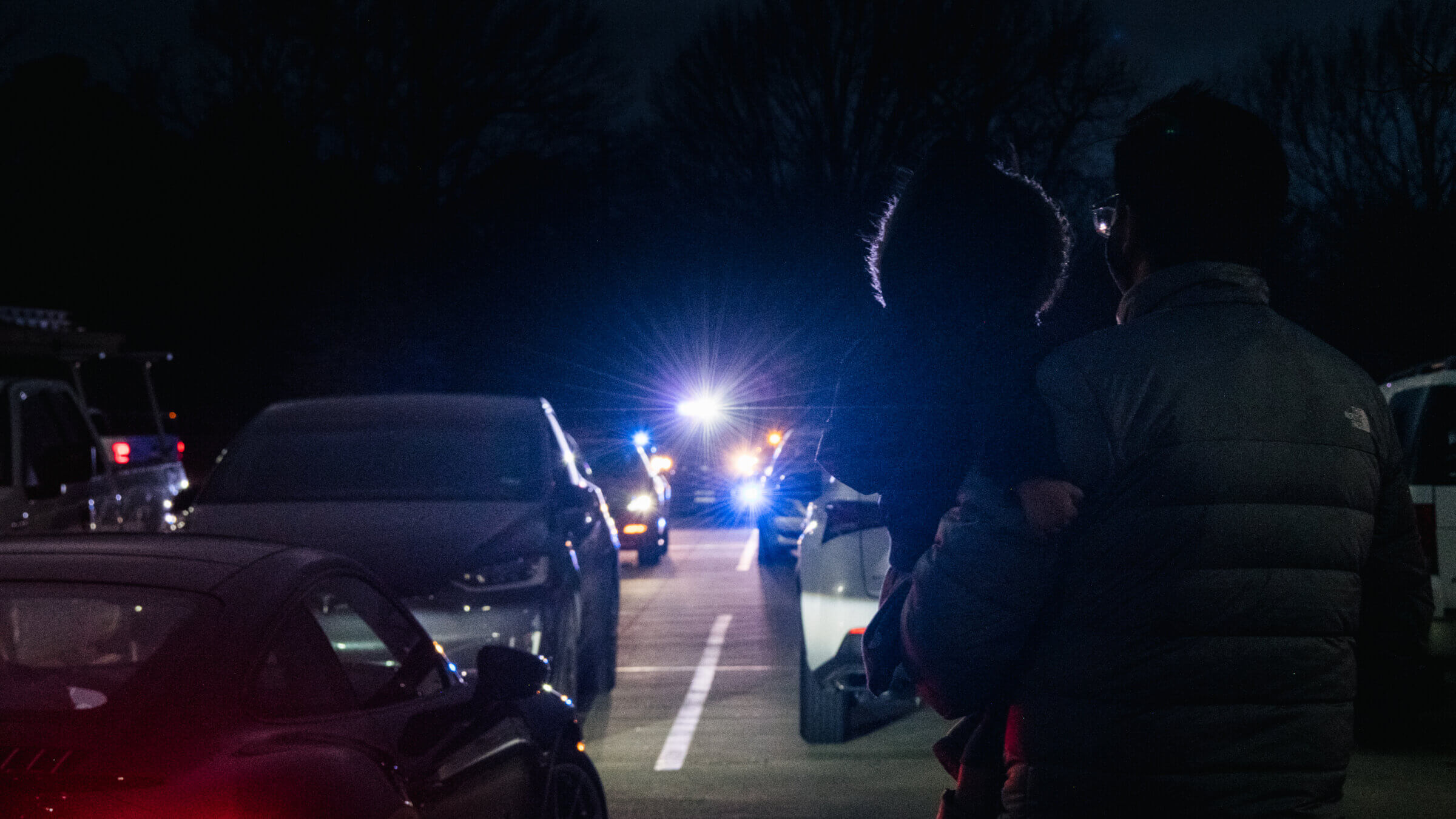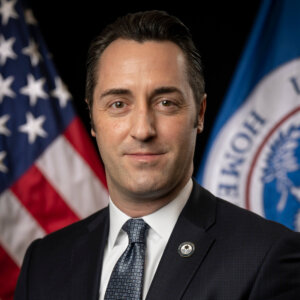A year after the Colleyville hostage incident, four practical ways Jews can protect themselves
Congregation Beth Israel’s decision to take safety seriously saved lives, and we can all learn from their example

A father carries his child out of a Catholic Mass service near the Congregation Beth Israel synagogue on January 15, 2022 in Colleyville, Texas Photo by Brandon Bell/Getty Images
One year ago, an armed gunman held four Jewish worshippers hostage at Congregation Beth Israel Synagogue in Colleyville, Texas, for 11 hours. The hostage-taking was yet another disturbing example of the constant threat of violence, extremism and antisemitism that Jews face in the United States. It was also a call to action.
All four hostages survived the event, largely because they were trained on what to do in case of an attack. In the year prior to the attack, Congregation Beth Israel worked with the Secure Community Network to address its security needs and partake in security trainings for its congregants. That collaboration occurred because of leadership in the Tarrant County community — and at the synagogue — which understood the complex threat facing the Jewish community, and the necessity to prepare for an attack.
It’s amazing to think that in the United States of America a house of worship must prepare to be attacked. But that’s the reality of being Jewish today.
Congregation Beth Israel’s decision to take safety seriously saved lives. All synagogues and Jewish facilities across North America should make the same decision. Attacks like the ones we have seen in Colleyville, or Poway, or Pittsburgh, can happen at any time and at any place. We cannot control when or where the next attack will happen, but we can control our preparedness. We can make a decision to commit to action.
The duty desk at SCN has received 84 reports of bomb threats to Jewish institutions since Colleyville. Online threats are routine and when an internationally recognized celebrity says to his 31.5 million Twitter followers he will go “death con 3 on Jewish people,” the signal is sent that attacking Jews is fine. Tragically, there are people who look for these signals and too many who are willing to act on them.
To protect Jews everywhere, Jewish facilities must develop a comprehensive and thorough security plan, that includes the four steps below. Other religious institutions or groups under threat should do the same.
- Get a security assessment. Developing a security strategy starts with undergoing an assessment of a facility and its physical vulnerabilities. SCN and the national network of professional security directors, who oversee Community Security Initiatives at Jewish Federations and with partners around the country, routinely provide these assessments.
- Bolster physical security. Common elements of many physical security plans include panic buttons placed at key locations around the facility, automatically locking external doors and bullet or impact-resistant glass. Jewish facilities should also apply for federal grants to support their physical security plans. The federal government, through the Department of Homeland Security and the Federal Emergency Management Agency, made $250 million available last year to the faith-based and non-profit community to improve physical security.
- Coordinate with local public safety officials. Facilities must provide accurate diagrams to local law enforcement and develop a strong relationship with local police and other public safety agencies, like fire departments. Hostage rescue and SWAT teams must have immediate access to building plans so they can study the inside of a facility. No one should wait until a crisis to search for these plans. It likely will be too late.
- Train, and train again. Training for leaders and congregants about what to do in case of an attack is essential. It can never be one-and-done. Leadership often rotates, and new congregants and staff transition in and out. Training must be repeated to be effective. In Colleyville one of the hostages, Jeffrey Cohen, said after his escape, “the training from the Secure Community Network saved our lives — I am not speaking in hyperbole here.”
Thousands of institutions have taken these steps directly, and roughly 65 Jewish communities around the country have implemented comprehensive security initiatives informed by these steps from SCN. These suggestions for a thorough security plan are the best way to save lives.
Congregation Beth Israel made a life-saving decision months prior to the attack to prepare and protect their community by addressing and improving their security needs. More communities need to step up and do the same.
All Jewish facilities must learn from this event, and understand our community is a target. In order to save lives, we must be as prepared and protected as possible.
To contact the author, email [email protected]

















